
Jesus is the divine Sower who sows the seed of his word in the community of followers that he calls apart from the world. The seed takes root in us when we hear the word of God. To hear, to really hear, to absolutely hear the voice of God and not the myriad other distracting voices that call out for our attention, we must do something that is very difficult. We must cultivate silence.
Most retreatants discover that on the first day or so of a retreat, in the quiet of the retreat house with nothing to do except listen to God’s voice, that a thousand other voices—strident and loud—all of a sudden appear, clamoring for attention. Listening to those stories and letting them go can be an essential first step in creating the silent soil that is able to receive God’s Word. But we don’t need to be on a retreat to enter into this atmosphere of silent recollection. It is possible to spend a short period every day as a mini-retreat to cultivate the soil of our heart.
We can start by disconnecting from social media and our phones. At first it may seem frightening to be cut off from the torrent of words and images that flood our media-saturated consciousness. We might feel nervous as we wait in silence for the work of the divine Sower. Our soul may feel fragmented and untilled and unprepared for the seed. In patience we will acquire the stillness that longs to receive the fullness of God’s Word. It is a spiritual art and discipline to be able to distinguish the harmony of God’s voice from the discord of worries, temptations, desires, and ambitions. This discernment comes precisely from the experience of entering into silence.
Pope Benedict XVI said, “‘Only in silence can the word of God find a home in us, as it did in Mary, woman of the word and, inseparably, woman of silence’ (Verbum Domini, n. 66). This principle — that without silence one does not hear, does not listen, does not receive a word — applies especially to personal prayer as well as to our liturgies: to facilitate authentic listening, they must also be rich in moments of silence and of non-verbal reception” (General Audience, March 7, 2012).
How does God desire you to open wide your heart in silence? Ask the Lord what practical steps he desires you to take to recover this contemplative dimension of life.
Daily Reading
Memorial of Saints Joachim and Anne, Parents of the Blessed Virgin Mary
Readings for the Memorial of Saints Joachim and Anne, parents of the Blessed Virgin Mary Reading 1 JER 3:14-17 Return, rebellious children, says the LORD, for I am your Master;…
Saint of the Day
Saints Joachim and Anne, Grandparents of Jesus
Saints Joachim and Anne, devout parents of Mary and grandparents of Jesus, exemplified profound faith and were blessed with Mary after initial childlessness.
The post Saints Joachim and Anne, Grandparents of Jesus appeared first on uCatholic.

My third child is one of the most joyful, energetic, and helpful kids I know. He loves to spend time with his mommy, which he has professed to be “even better than playing video games”. He often anticipates the needs of his siblings and parents before being asked and is usually the first to share a toy or a treat. While playing sports, he typically has a smile on his face the entire time. He is just a happy kid.
His middle name happens to be the Spanish version of today’s saint and I can imagine the Apostle James living with much the same happiness as my seven year old. He had the distinct privilege of being one of the Lord’s closest friends. Several times in the Bible we hear that Jesus took with him “Peter, James and John” when he was going up a mountain to pray or healing a sick individual. These three were what in today’s terms we might call Jesus’ BFFs. Surely that was cause for much joy!
Now don’t get me wrong, I know that neither Jesus’ life nor that of his disciples was a bowl full of cherries. We all know the persecution and hardships they suffered. We all know how Christ’s life tragically ended and that most of his apostles followed in His footsteps. Yet, the simple fact of being able to accompany our Lord so closely, to experience his presence, his light and his friendship must have filled them with so much peace. I can only fathom it as something like a positive “addiction” to His holiness, that once experienced, they could no longer live without.
Today’s first reading seems to portray these thoughts perfectly: “We are afflicted in every way, but not constrained; perplexed, but not driven to despair; persecuted, but not abandoned; struck down, but not destroyed; always carrying about in the body the dying of Jesus, so that the life of Jesus may also be manifested in our body.” No matter what happens to us, we shall not be overcome because the power of Jesus’ death and resurrection has already overcome.
For this reason, let us take to heart the words of the Psalm Response: “Those who sow in tears shall reap rejoicing.” With this in mind, let us also proclaim “The Lord has done great things for us; we are glad indeed”!
Daily Reading
Memorial of Saints Joachim and Anne, Parents of the Blessed Virgin Mary
Readings for the Memorial of Saints Joachim and Anne, parents of the Blessed Virgin Mary Reading 1 JER 3:14-17 Return, rebellious children, says the LORD, for I am your Master;…
Saint of the Day
Saints Joachim and Anne, Grandparents of Jesus
Saints Joachim and Anne, devout parents of Mary and grandparents of Jesus, exemplified profound faith and were blessed with Mary after initial childlessness.
The post Saints Joachim and Anne, Grandparents of Jesus appeared first on uCatholic.

Today as we celebrate Saint Sharbel we hear the parable of the sower. This parable should be quite familiar to most of us. It ends by telling us that when seed is sown in good ground it grows well and produces good fruit. By now, we know that the sower is really God.
If you have or have had children, hopefully you know that they are like little sponges wanting to know more about God. I do know something about this as my wife and I have raised eight children. I probably have mentioned this before, but I was touched by the Lord at four years old. It came about because the pastor’s wife of the local Free Methodist Church would pick me up on Sunday mornings to go to Sunday school. We would sit on a rug in the basement of the church facing a felt board which was used to tell Bible stories. My eyes must have been the size of saucers, I was so excited to hear the story. I was one of those little guys that wanted to hear more and more. The parable of the seed tells us that good things happen when a child is nurtured in the things of the Lord. I was being taught Bible stories and I loved it!
Saint Sharbel was a model of holiness for all of us. At three years old, his dad died and he was raised by his uncle. Fast forward twenty years and he entered a monastery at age 23. He kept a strict fast and was helpful to whoever he met. For approximately 22 years, he lived the life of a hermit. He wanted to spend his time being immersed in God. And he did.
Perhaps we can ask ourselves what it would take for us to be all in. Impossible you say? For many I would say yes, it is. But, what about you and what about me? What is holding us back? For many it is too much stuff. Or, it could be one of the thousands of distractions that keep us away from the Lord. He is waiting for us to turn our face toward His and listen to Him so He can guide us.
Serving with joy!
Daily Reading
Memorial of Saints Joachim and Anne, Parents of the Blessed Virgin Mary
Readings for the Memorial of Saints Joachim and Anne, parents of the Blessed Virgin Mary Reading 1 JER 3:14-17 Return, rebellious children, says the LORD, for I am your Master;…
Saint of the Day
Saints Joachim and Anne, Grandparents of Jesus
Saints Joachim and Anne, devout parents of Mary and grandparents of Jesus, exemplified profound faith and were blessed with Mary after initial childlessness.
The post Saints Joachim and Anne, Grandparents of Jesus appeared first on uCatholic.
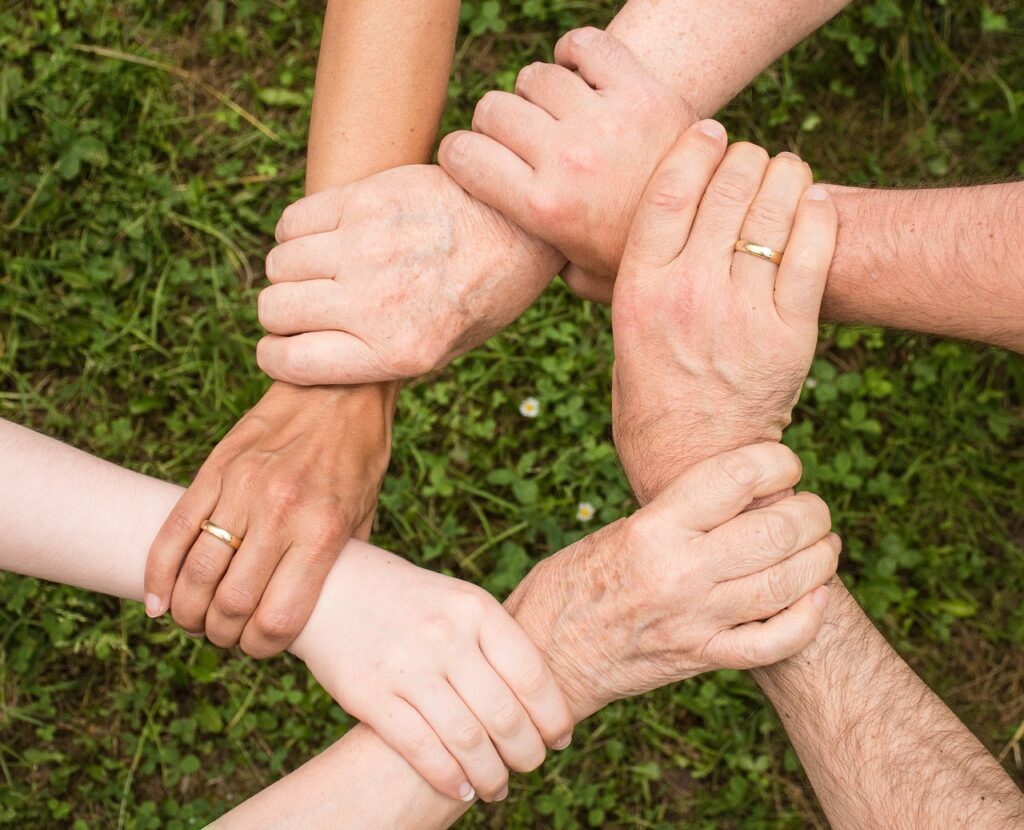
Do you have friends who are more like family?
I’ve known some people in my life who I’m pretty sure I’m actually related to. No, we aren’t biological relations, but we laugh and cry and support each other so much you’d think that we were “cut from the same cloth.”
But, I really am related to them.
When Jesus says, “Whoever does the will of God in Heaven is my mother and my brother,” we know that we are God’s adoptees. Through word and deed, in action and speech, in truth and in love, the rest of the world will know that we are Christians. We become automatically related to God when we confess our sins and cry out, “Abba, Father!”
Today, let us go to the Father and remember our place in the family as sons and daughters of God. Let us claim the crown of adoption. And let us delight in the love of our Father as only little children can do.
Daily Reading
Memorial of Saints Joachim and Anne, Parents of the Blessed Virgin Mary
Readings for the Memorial of Saints Joachim and Anne, parents of the Blessed Virgin Mary Reading 1 JER 3:14-17 Return, rebellious children, says the LORD, for I am your Master;…
Saint of the Day
Saints Joachim and Anne, Grandparents of Jesus
Saints Joachim and Anne, devout parents of Mary and grandparents of Jesus, exemplified profound faith and were blessed with Mary after initial childlessness.
The post Saints Joachim and Anne, Grandparents of Jesus appeared first on uCatholic.
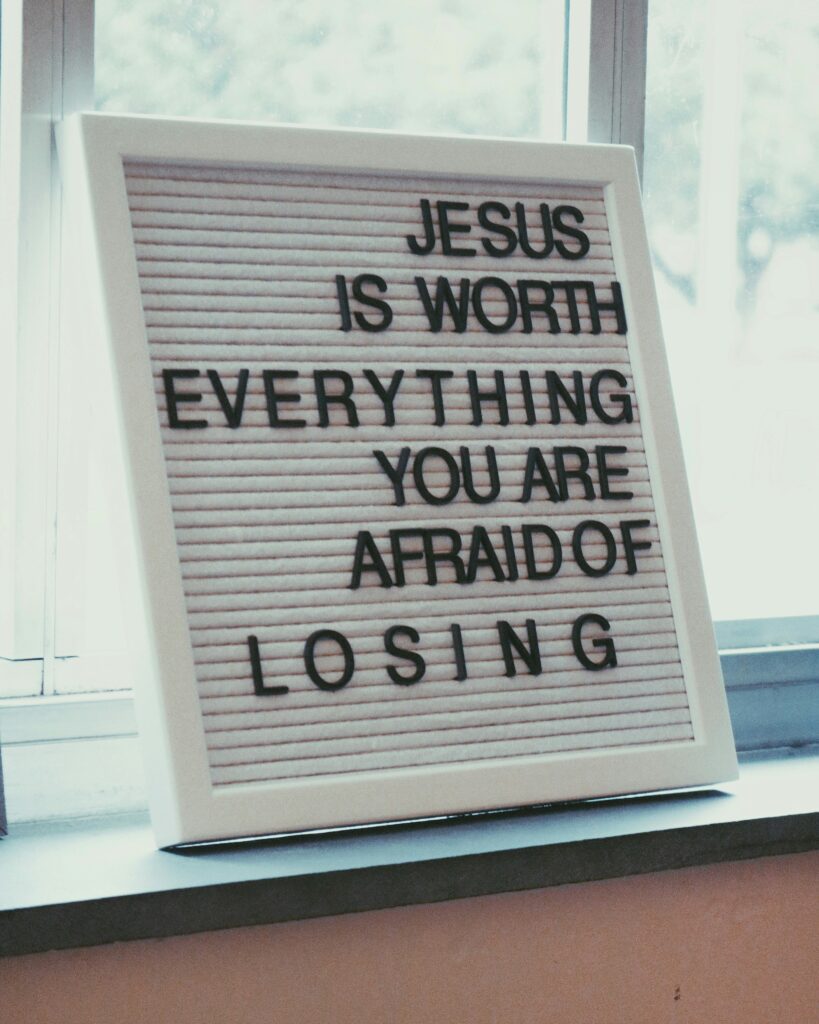
Love drives us beyond our “selfwardness”, beyond our narrow vision, beyond our comfort zone, even beyond our natural limits, to desire, to seek, to do more than is necessary. Love for the Lord springs from our confidence that we are loved by the Lord, and prompts us to ask so that we will receive, seek so that we will find, knock so that it will be given to us.
Today we celebrate the Feast of Mary Magdalene, whose love for the Lord has her seeking Him and Him alone. She is undeterred by the risk of being arrested and apparently unmoved by the presence of two angels speaking to her. She is focused on finding anew the One Who has loved her into wholeness, to whom she has dedicated her life and her means, and the source of her joy and peace.
But when she turns away from the tomb, she does not see Jesus right in front of her. How can she miss this? Because she is looking for a dead body. She could not have guessed that Jesus was alive, glorified, and again at work in the world. She does not recognize the One she loves until He speaks her name.
This is a mistake we all can make: we are expecting the Lord to reveal Himself in a certain way, and so we cannot see Him when He works in surprising ways. He is, after all, a God of surprises. Often, we have lost our sense of wonder and awe and patient openness. We look for Him to answer our prayers in a specific way, in a specific time; when He says, “Actually, I have a better idea,” we cannot recognize His hand at work.
Today, let us open our whole selves to His presence in whatever way HE wills to reveal Himself; then, our seeking will always be rewarded because we will receive Him as He gives Himself, hear Him when He speaks what we truly need to hear and provides what we truly need to draw closer to Him in the way that He knows is best.
Mary Magdalene, pray for us, that we will receive the grace we need to see the Lord clearly in our lives every day. Then, we can say with you, “I have seen the Lord.”
Daily Reading
Memorial of Saints Joachim and Anne, Parents of the Blessed Virgin Mary
Readings for the Memorial of Saints Joachim and Anne, parents of the Blessed Virgin Mary Reading 1 JER 3:14-17 Return, rebellious children, says the LORD, for I am your Master;…
Saint of the Day
Saints Joachim and Anne, Grandparents of Jesus
Saints Joachim and Anne, devout parents of Mary and grandparents of Jesus, exemplified profound faith and were blessed with Mary after initial childlessness.
The post Saints Joachim and Anne, Grandparents of Jesus appeared first on uCatholic.

In today’s first reading from Jeremiah we hear the Lord in agony over the shepherds he has called to tend to his flock. Jeremiah shares God’s words: “You have scattered my sheep and driven them away. You have not cared for them, but I will take care to punish your evil deeds.”
It could be easy to look at this and think about the faults of priests and bishops over the centuries, but I read this and hear Jeremiah talking to me and to all of us. Vatican II was very clear that as lay people we are all called to preach the Good News, to engage the culture, to help bring people into the Church, and to show love to all we meet. Pope Paul VI stated: “As sharers in the role of Christ as priest, prophet, and king, the laity have their work cut out for them in the life and activity of the Church. Their activity is so necessary within the Church communities that without it the apostolate of the pastors is often unable to achieve its full effectiveness.” (Apostolicam Actuositatem, section 10)
Let’s reflect on that for a second. The pope said that if we do not evangelize and fulfill our offices of priest, prophet, king, then pastors cannot be truly effective. See how the words from Jeremiah start to apply to us today? I think there is an ideology that has crept into the Church that as long as we are nice and treat others well then people will somehow make the connection that we are Christian and we don’t need to explicitly evangelize.
Of course, this doesn’t work. Any number of people can be nice and caring without being Christian. Christ makes it clear in the Gospels: “Go therefore and make disciples of all nations, baptizing them in the name of the Father and of the Son and of the Holy Spirit, and teaching them to obey everything that I have commanded you. And remember, I am with you always, to the end of the age.” (Matthew 28:19-20)
In order for us to respond to the call of Christ we have to ask for the courage to be explicit about our faith. Living a good life is not enough. Everyone has different strengths and spiritual gifts, so maybe you are not personally called to go into the streets and talk to people about Jesus or to give a public talk at a youth group, but there is something specific that God is calling you to do. Maybe it is talking with a coworker or someone at the gym who has questions or maybe even someone on staff at the parish who needs some help.
Let’s pray today that we might realize how God is calling each of us to evangelize in our own way. Jesus has chosen us to be instruments of his love, peace, and mercy. Let’s answer the call and preach the Gospel to all those we meet.
From all of us here at Diocesan, God bless!
Daily Reading
Memorial of Saints Joachim and Anne, Parents of the Blessed Virgin Mary
Readings for the Memorial of Saints Joachim and Anne, parents of the Blessed Virgin Mary Reading 1 JER 3:14-17 Return, rebellious children, says the LORD, for I am your Master;…
Saint of the Day
Saints Joachim and Anne, Grandparents of Jesus
Saints Joachim and Anne, devout parents of Mary and grandparents of Jesus, exemplified profound faith and were blessed with Mary after initial childlessness.
The post Saints Joachim and Anne, Grandparents of Jesus appeared first on uCatholic.

**This reflection has been reposted from Diocesan Archives.**
“Are you alive in Christ?” There was a decently loud response from the crowd, a rumbling of “Yes.” Fr. Agustino Torres wasn’t satisfied with that response, though, and so he asked again, even louder this time, “Are you alive in Christ?” A louder “Yes” resounded through the crowd. Still not good enough, though. “ARE YOU ALIVE IN CHRIST?” Finally, a thunderous “Yes” rolled through the field house along with loud screaming and applause.
This sequence of questions and responses took place at a Steubenville Youth Conference during the Sunday morning homily. There were about 1,000 people in that field house who, yes, were certainly alive in Christ at that moment. It’s hard not to be after all that had happened over the weekend. Fr. Agustino cautioned us, though, as we still needed to be alive in Christ after we left the conference and every day after.
So what does it mean to be alive in Christ? Each person’s journey, their following of Christ, is going to look a little different so every person’s answer is going to be different and that’s okay. Generally, I would say that being alive in Christ has a few main pieces, such as: prayer, Scripture and the sacraments. All of these graces will give us the strength to be in relationship with our Lord Jesus Christ and to truly be alive in Him.
How does all of this relate to today’s Scripture readings? I look toward the Gospel and I am reminded of some simple truths of our faith. The person of Jesus Christ, the person that we are alive in, so many people in his day sought to put Him to death because what He was teaching was so counter-cultural. Does this fact remind you of anything? As Catholic Christians, most of what we believe and teach is counter-cultural and our culture tries to cancel us – to put our beliefs to death, so to speak – for doing so.
Even as the Pharisees were seeking to put Jesus to death, many people still chose to follow Him. Many people were alive in Christ as they followed Him! This is a reality that we must face if we are truly to be alive in Jesus, that people will seek to pull us down. But our strength lies in the graces that we receive and in the person who is greater than all things. Our strength, our life, lies in Jesus Christ.
Daily Reading
Memorial of Saints Joachim and Anne, Parents of the Blessed Virgin Mary
Readings for the Memorial of Saints Joachim and Anne, parents of the Blessed Virgin Mary Reading 1 JER 3:14-17 Return, rebellious children, says the LORD, for I am your Master;…
Saint of the Day
Saints Joachim and Anne, Grandparents of Jesus
Saints Joachim and Anne, devout parents of Mary and grandparents of Jesus, exemplified profound faith and were blessed with Mary after initial childlessness.
The post Saints Joachim and Anne, Grandparents of Jesus appeared first on uCatholic.
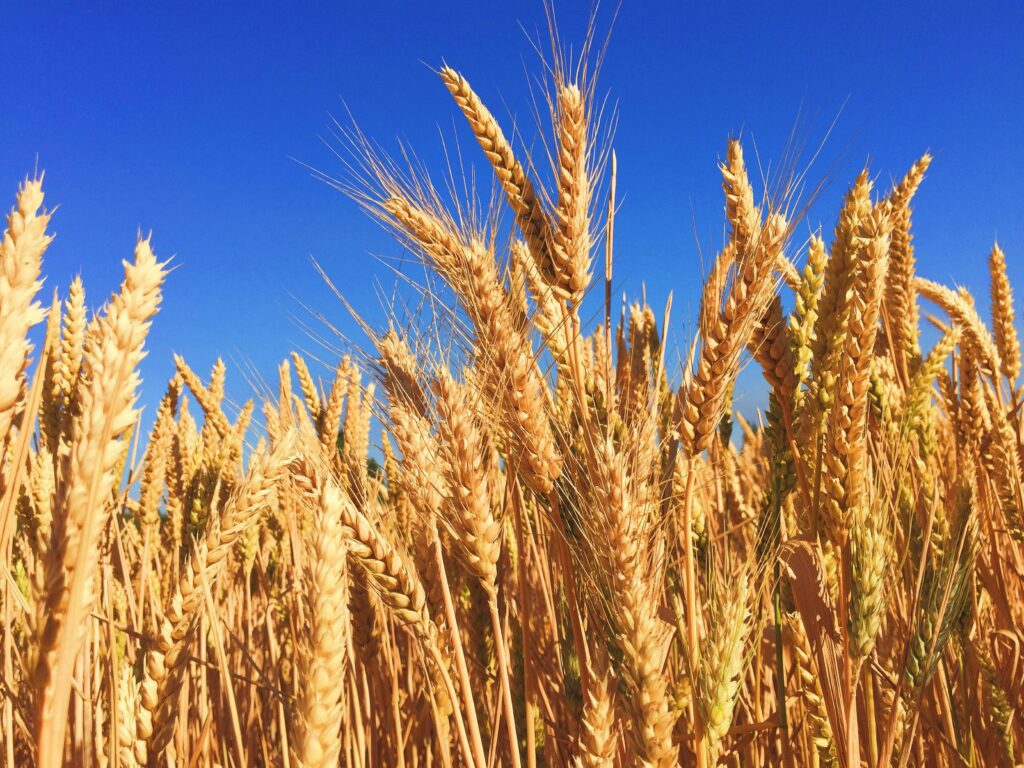
Our readings today seem a little disjointed, while at the same time having some similarities. In our first reading from Isaiah we have Hezekiah, a descendent of David and king of Judah, suffering from an illness. In our Gospel from Matthew, we have Jesus and his disciples walking through a field on the Sabbath, and the Lord’s followers are suffering from hunger.
Here’s a way the two narratives diverge. Isaiah tells Hezekiah to get his affairs in order because he is going to die and Hezekiah responds by praying to God. Meanwhile, the disciples recognize their hunger and take it upon themselves to pick grain from the field and start munching on it. Those ever-present Pharisees see it and scold the group for violating the rules of the Sabbath.
At this point, I think the two stories converge again, and it’s because of God’s love for his people. In Hezekiah’s prayer, he asks God to remember that he has been faithful. Indeed, Scripture lists the pious works of the king, clearing the temple of idols and reinstating worship in God alone. He even destroyed the bronze serpent that Moses lifted up in the desert to heal those bitten by poisonous snakes, because that great symbol of God’s love had been turned into an idol of its own when people began worshiping it instead of God. God hears Hezekiah’s prayer and sends Isaiah back to tell him he will recover from his illness and live many more years.
God also hears the condescension of the Pharisees upon the disciples, and He comes to their aid as well, in the person of His Son, Jesus, true God and true man. Jesus defends his followers, reminding the Pharisees that the rules of the Sabbath are meant to help people in their holiness, not hinder them in their well-being. David and his troops ate bread they were forbidden to eat on the Sabbath because of their need. God did not hold that against them. Jesus then quotes the prophet Hosea, “I desire mercy, not sacrifice.” In modern language, “These guys are hungry, cut them some slack.”
God protects His faithful servant, Hezekiah. Jesus protects His faithful followers, the disciples. That should lead us to great joy. If we recognize our place on this Earth as faithful servants and followers of our Lord, we can rejoice in knowing that He will hear our prayers and answer our needs.
Let us revel in our place, loving God with our whole heart, soul and mind, as we love our neighbor as ourselves — all the while staying humble in that place. Hezekiah later turned boastful about how faithful he was. The Apostles got caught arguing about who among them was the greatest. That’s not our place. That’s no way to respond to God’s goodness. He will truly respond to us with his unfathomable love when we properly and humbly respond to Him and his children.
Daily Reading
Memorial of Saints Joachim and Anne, Parents of the Blessed Virgin Mary
Readings for the Memorial of Saints Joachim and Anne, parents of the Blessed Virgin Mary Reading 1 JER 3:14-17 Return, rebellious children, says the LORD, for I am your Master;…
Saint of the Day
Saints Joachim and Anne, Grandparents of Jesus
Saints Joachim and Anne, devout parents of Mary and grandparents of Jesus, exemplified profound faith and were blessed with Mary after initial childlessness.
The post Saints Joachim and Anne, Grandparents of Jesus appeared first on uCatholic.
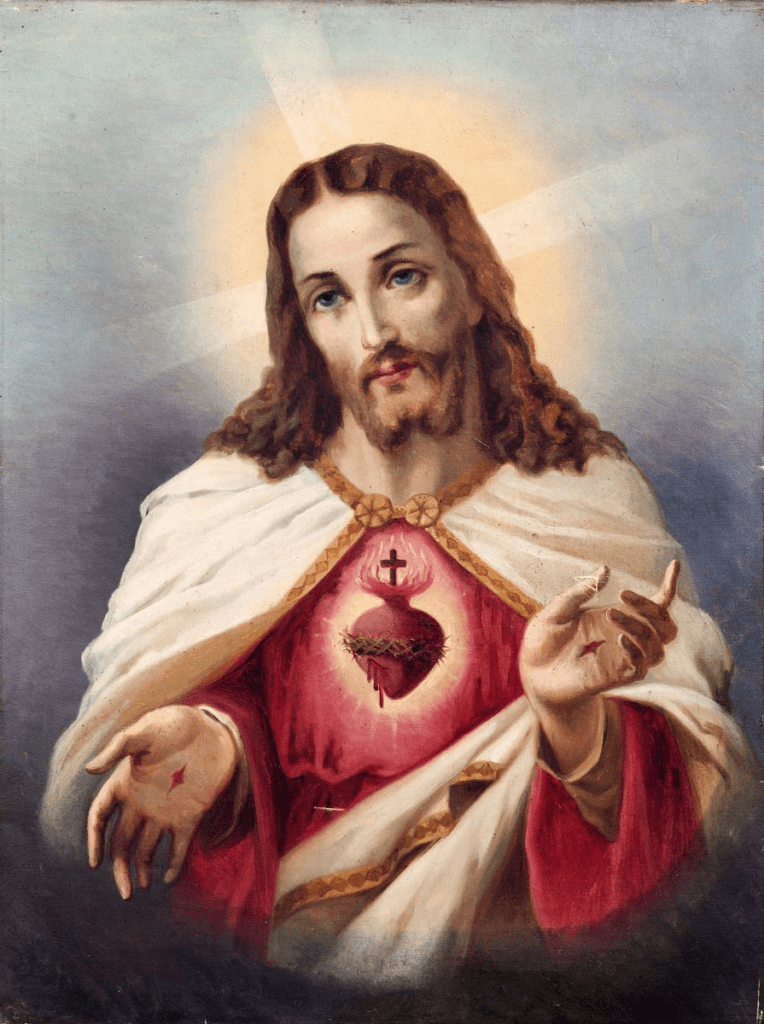
“Come to me.” The words of a lover. Powerless words. Vulnerable words. The one who says them must wait upon the response of the one to whom they are addressed. “Will you come to me?” The loved one must answer “yes” or “no”. If they answer “yes” then the love of Jesus has triumphed and Jesus can open his heart completely to pour out the fullness of the life he shares with the Father. If the answer is “no” and the love is refused then the gift of love has met with a tragic end.
Ultimately, the Father and the Son’s invitation to the world, inviting each person into their eternal loving and living and giving is, in fact, limited only by human refusal. As soon as we say our “Yes” to Jesus, we discover that the pressures that weigh on us from both the world and our own selves begin to fade away. We are let in on the “secret,” so to speak, of the mystery Jesus came to reveal to us.
We begin to see how we receive all from the Father, every last thing that we are and have and accomplish. In Jesus we see the way to live in relation to the Father: in blessing and thanksgiving, in worship and wonder. We make the astounding discovery that the world truly has no power over us when we make our home in God.
Jesus invites you today and every day, in situations of joy and in pain, in laughter and in tears, in circumstances that demand outstanding courage and those that require a humble peace, “Come to me!” Jesus stands at the door of our hearts as a beggar, but—oh!—how much joy fills his heart when we reach out our hand to take his, to go with him wherever he leads.
Daily Reading
Memorial of Saints Joachim and Anne, Parents of the Blessed Virgin Mary
Readings for the Memorial of Saints Joachim and Anne, parents of the Blessed Virgin Mary Reading 1 JER 3:14-17 Return, rebellious children, says the LORD, for I am your Master;…
Saint of the Day
Saints Joachim and Anne, Grandparents of Jesus
Saints Joachim and Anne, devout parents of Mary and grandparents of Jesus, exemplified profound faith and were blessed with Mary after initial childlessness.
The post Saints Joachim and Anne, Grandparents of Jesus appeared first on uCatholic.
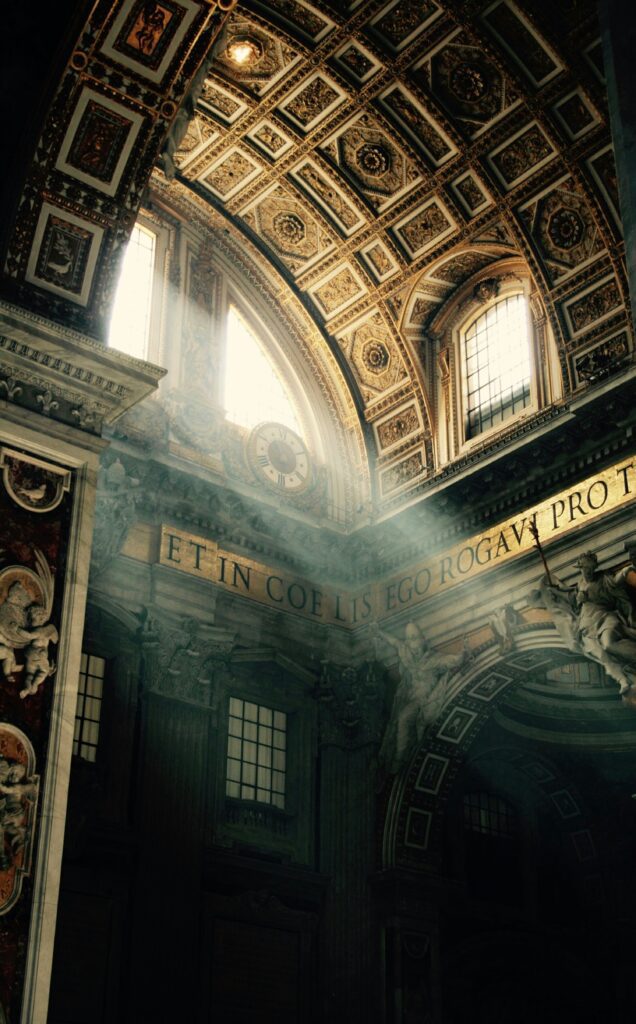
We must have complete freedom to follow Christ.
I’ve had a deep love for our Lord from a very young age when our home was only half a block away from our family Church. I was a dedicated altar server. If the priest or nun asked me to help with anything for the Church, I was all over it. In my bedroom, there was a corner that looked like a small chapel. Any money that I made cutting grass or received from my allowance, I would ask my Mom or Dad to take me to our local religious goods store so that I could buy more Catholic items. I really loved our Lord and anything that represented His Church.
In the 8th grade I began to wonder if I was called to the vocation of priesthood. At the time, it seemed to me I didn’t get the support I needed to follow this path from my family or the other adults around me. This lack of support meant I wasn’t free to follow this vocation.
This was also about the same time my parents decided to get divorced. I remember riding my bike to Church and praying, asking for God’s help to not let my parents get divorced. It felt like my prayers fell on deaf ears. In my teenage mind, I ended up very angry at the Church. My anger prevented me from being free to follow a priestly vocation.
I was set to enter a Catholic high school. I asked my mom if I could go to a public high school instead. Because I was still mad at God, I wanted to cut that part of myself out. My friends, sports and dabbling on the wild side of life a little bit left me unhappy most of the way through high school. Focusing on earthly things meant I wasn’t free to follow a vocation.
But God had a plan and when I went to college, my roommate was Catholic. I never opened up to him about my faith but he and his girlfriend always asked me to go to church with them. I would graciously decline…until one Saturday I agreed. I felt like I was home again.
It was also about this time that I met the most loving, beautiful woman in the world who wasn’t Catholic. But again, God had a plan. After college, we got married and she joined the Church. As time went on my love for the Lord grew. Since my love for God was free to grow again, the thoughts of a vocation began to grow again too.
I am happy to say the Lord is #1 in my life again (my wife is a close second) and by the time you read this, God willing, I will have been ordained a Permanent Deacon for the Catholic Church. I think it will be the greatest honor and most humbling moment of my life. But none of it would have happened if I hadn’t freed myself from my ties to this life, so that I was free to follow when I was called.
Daily Reading
Memorial of Saints Joachim and Anne, Parents of the Blessed Virgin Mary
Readings for the Memorial of Saints Joachim and Anne, parents of the Blessed Virgin Mary Reading 1 JER 3:14-17 Return, rebellious children, says the LORD, for I am your Master;…
Saint of the Day
Saints Joachim and Anne, Grandparents of Jesus
Saints Joachim and Anne, devout parents of Mary and grandparents of Jesus, exemplified profound faith and were blessed with Mary after initial childlessness.
The post Saints Joachim and Anne, Grandparents of Jesus appeared first on uCatholic.



